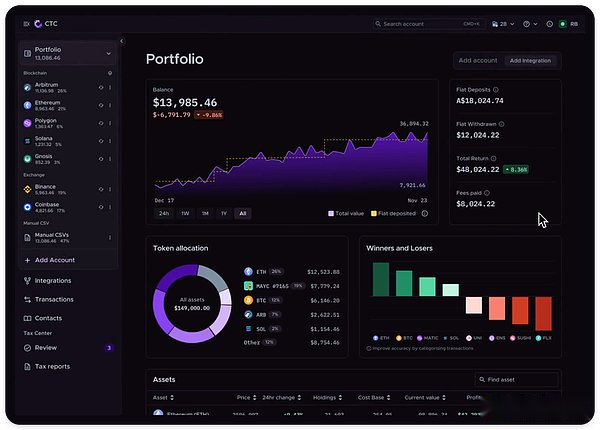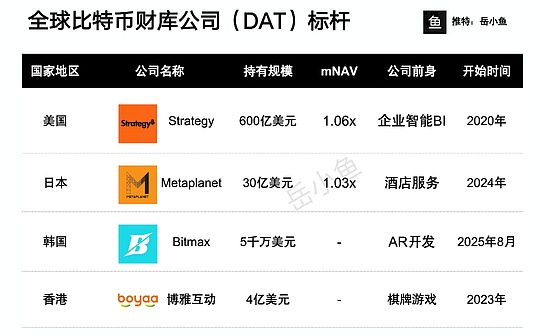
Author: Guest Author, Bankless; Compilation: Tao Zhu, Bitchain Vision
So far, I think everyone knows that tax people know your cryptocurrency and want to get a share of your earnings.
Given that it is the tax season for many countries around the world, we know that this time of year is particularly stressful for people in the cryptocurrency space.The U.S. personal filing deadline is coming, so we will focus on the IRS rules in this article.However, given that many tax authorities treat cryptocurrencies in a similar way, this is still relevant to everyone.
By the end of 2023, the new metadata is very obvious: airdrops.Let’s take a look at some of the traps of airdrop tax, how to submit cryptocurrency taxes, and some tips to avoid being refuted by tax officials.
Basic knowledge of cryptocurrency taxation
When investing in cryptocurrencies, you need to know two main tax types: Capital Gains Tax (CGT) and Income Tax.For simplicity, when you dispose of crypto assets, a capital gains tax event occurs, and when you make a profit in a way similar to income, an income tax event occurs.
Here is a basic list of some events that fall into each category:
Asset VAT
-
Profits from selling cryptocurrencies;
-
Profits obtained by trading cryptocurrencies (e.g., swap BTC for ETH);
-
Use cryptocurrency to buy goods or services;
-
Profits obtained by trading NFTs.
Income Tax
-
airdrop;
-
pledge reward;
-
Hard fork
-
DeFi/Rewards;
-
mining
-
Salary paid in cryptocurrency
Given the number of airdrops over the past 12 months, we will focus on taxes specifically targeting the airdrop itself.
Tax Impact of Airdrop
If you have been airdropping on different protocols and chains, it is important to understand what your activity may mean for tax purposes.
Although the IRS has not yet issued specific guidelines for many of the existing nuanced cryptocurrency transactions, there is enough information available to infer how they handle a particular situation for tax purposes.
You may deposit cryptocurrency in at least one smart contract, whether for staking, mining, providing liquidity, or other purposes.Whatever you are doing, it is important to know that the IRS may consider it a disposal event, which leads to a capital gains tax incident.
While there is no specific guidance on smart contract deposits, the problem comes down to be beneficial ownership.If you no longer control the tokens after depositing, the IRS may consider this to be a disposal event.
Let’s consider the following scenarios:
Suzan is an avid airdrop player who decided to pledge 10 ETH in the staking agreement.She initially bought ETH for $20,000, and when she deposited it, it had a market value of $25,000.
Suzan considered whether she retained beneficial ownership of ETH during the deposit period and believed she did not.As a result, she treats the deposit as a disposal, resulting in a capital gain of $5,000.
Without specific guidance, you usually have two options: take a conservative path and avoid penalties, or take a more radical stance and risk resubmitting and paying fines.
If you take a more radical stance, you will need to have reason to support your claim.It is highly recommended that you consult a tax professional before going this path.
It is important to remember that many smart contracts will also provide you with receipts or LP tokens in exchange for your deposit.The IRS has clear guidance that cryptocurrency-to-cryptocurrency transactions trigger capital gains tax (CGT), so if you encounter this, it may be difficult for you to take a different approach.
If you are one of many people who have hundreds or even thousands of smart contract interactions through airdrops, you might think of the accounting nightmare at your hands.Don’t feel stressed.We outline some options below to help you sort out your taxes so you can rest assured.
How to tax airdrops?
Let’s discuss the airdrop itself.aboutThe key point of airdrops is that the IRS believes they calculate taxable income at market value at the time of receipt.
Continue with the above scene:
Suzan’s agreement to stake ETH has decided to reward users, and she is eligible to receive 1,000 tokens.Suzan received the tokens when he went to the airdrop portal and received them in his wallet, which had a market value of $15,000.
In this case, the IRS considers Suzan to earn $15,000.
Suzan decided to keep these tokens, and their value slowly declined.Ultimately, Suzan decided to reduce his losses and sold the tokens for $5,000 in the same fiscal year.
In this case, Suzan triggered the CGT event and lost $10,000.This is calculated by subtracting the sales earnings from the value of the tokens in Suzan when he first received the token in his wallet.
Suzan has not engaged in any cryptocurrency activities for the remainder of the fiscal year.She earned $5,000 from her pledge deposit and lost $10,000 from the sale of airdrop tokens, which ended up having a net loss of $5,000 in her capital.
Hidden traps for airdrop mining
Despite the loss of $5,000 in capital and taking only $5,000, Suzan still had to pay tax on $12,000 in revenue.how so?
The IRS only allows Suzan to deduct $3,000 worth of capital losses from her income each fiscal year.This makes Suzan have to pay taxes on $12,000 in income, although she only deposited $5,000 from the airdrop tokens.
This is a hidden trap for airdrop mining (and many other revenue-generating cryptocurrency activities).If Suzan receives more airdrops, or the tokens fall further, the situation may get out of control.
In some cases, the taxes owed by an investor exceed the value of their entire portfolio.When it comes to airdrops or any other cryptocurrency income, be sure to set aside enough funds to pay taxes immediately so you don’t get caught in this situation.

Avoid crypto tax nightmare
Even in the best case scenario, crypto tax can be a maze, but if you’ve been actively doing airdrops, you can get into a nightmare if you’re not doing it well.
It is common for cryptocurrency practitioners to have multiple trading accounts and hundreds of wallets on a large number of new chains.For tax purposes, you need to have a record of all transactions or the numbers won’t be added and you may end up overpaying taxes.
You have several options.One is to manually calculate the taxes yourself, which may be the best option if you are just tracking some basic deals on one or two exchanges.On the other hand, consult a tax professional, if you have complex assets and need to discuss where to start, this may be the best option for you.
Calculating taxes in cryptocurrencies can be daunting, but don’t delay or put yourself in pain.








